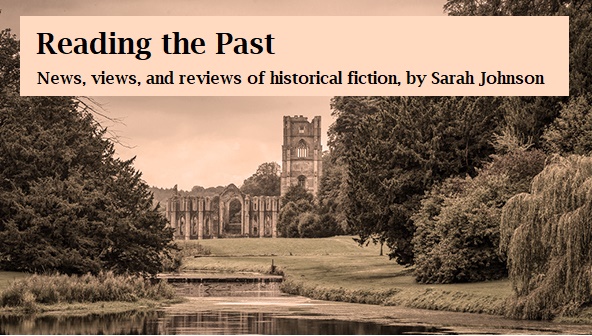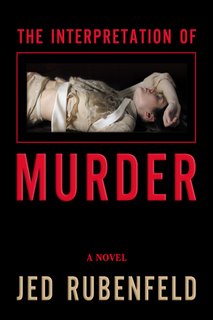 Here I am, the avid book hunter proudly displaying her "kill" from BEA last week. The photo's the best we could do with this decrepit digital camera (at least, I'm hoping it's the camera and not the subject). Anyway, most of the galleys in the photo are fall's upcoming historical novels, plus some others from spring/summer, so feel free to take a gander at them. The photo enlarges if you click on it.
Here I am, the avid book hunter proudly displaying her "kill" from BEA last week. The photo's the best we could do with this decrepit digital camera (at least, I'm hoping it's the camera and not the subject). Anyway, most of the galleys in the photo are fall's upcoming historical novels, plus some others from spring/summer, so feel free to take a gander at them. The photo enlarges if you click on it.Some final thoughts on the show.
At the "Beyond the Da Vinci Code" panel, which was fascinating, Steve Berry's explanation was the most concise and funniest definition of "high concept" fiction that I've heard so far. It's a simple equation: "ooooh" + "so what?" = "high concept." In other words, you take a subject so intrinsically interesting that people go "ooooh"when they hear it, add a catchy hook to the storyline that answers the "so what?" question, and there you have it, a high concept novel. Berry's examples: Knights Templar (ooooh). The Romanovs (ooooh). These subjects automatically capture many readers' attention. Add an interesting twist to the usual storyline - a Knight Templar tries to keep a secret that could change history (Robyn Young's The Brethren); Rasputin's daughter Maria narrates the story of her father's life and death (Robert Alexander's Rasputin's Daughter). The examples of book titles are mine, not Berry's, but I think they illustrate his point. This discussion calls to mind Irene Goodman's article on Anne Boleyn, which was discussed on Carla's blog a couple months ago. Berry doesn't write historical fiction, but he writes fact-based fiction about the past, and the panel encouraged me to pick up his novels. Besides, he said he likes detailed authors' notes, and he especially liked those that Sharon Kay Penman uses in her novels. He has good taste.
Never again will I trust the "honor system" in the BEA mailroom. I left a box partway full of books in the mailroom overnight, like everyone does (not full enough to mail, too heavy to carry back), but when Mark and I returned Saturday morning with more books, the box top was unfolded and empty, aside from one catalog. I don't think much was taken, aside from a few last-minute additions from Friday, but I was not happy about this.
A special thanks to David Payne and his publicist at William Morrow for noticing my librarian nametag and volunteering to sign another hardcover of Back to Wando Passo, besides the one he signed for me, to my library - because, as they said, supporting libraries is important.
Thanks also to John from Yale, who reads this blog, for mentioning The Meaning of Night, Thirteenth Tale, and The Glass Books of the Dream Eaters in previous comments. I got copies of all three, and may not have if I hadn't heard about them earlier. Thirteenth Tale has a great cover (who can resist a novel about books?) but despite reading the back cover copy and glancing through the pages, I'm still having a hard time getting a handle on what it's about. I can't even tell if it's historical, though it looks it. Guess I should shut up and read it. There's a website for Glass Books with a contest to win an ARC, so why not fill it out? I've heard it described as a Victorian thriller on acid... make of that what you will.
A nice surprise, since I don't get the Warner catalogs - Lalita Tademy has a sequel to Cane River appearing this fall. I loved her first novel and can't wait to read Red River.
I'm presently reading Kathleen McGowan's The Expected One, a previously self-published novel that was picked up by Simon & Schuster (quite the deal here) for publication in July. In the photo, it has a plain red cover. It's a modern/historical thriller about one woman's journey to find out more about her ancestor, Mary Magdalene, and her relationship with Jesus. The note at the end indicates it's partly autobiographical. Whether you believe the storyline or not (and it was written long before Dan Brown's book), overall, it's a real page-turner. More on her backstory at Galleycat.
Anyway, I had a lot of fun at the show, meeting lots of authors and publicists I've corresponded with over email. Plus, historical fiction - as you can see - was a hot topic this year. I'm not the only one who thought so, either.











